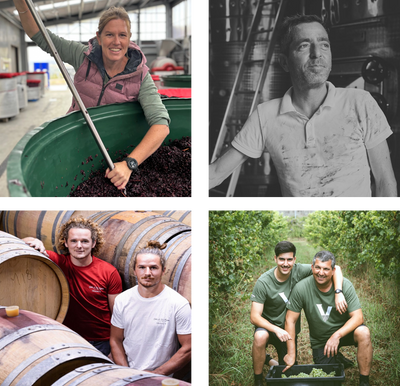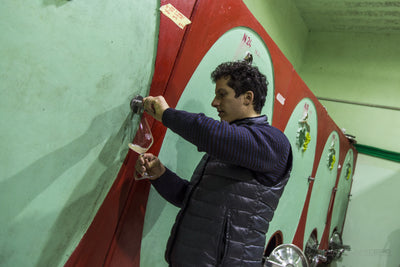The reality is the wine maker’s craft is almost always a matter of interrupting the natural process of grape juice turning into vinegar. Not even counting the pharmacopoeia of industrial products used in the vineyards, wine production on the scale that supplies supermarkets and larger distributors entails a huge amount of tinkering to ensure optimum output, uniformity of taste and so on. The number of additives used in these processes is often similarly huge.
From picking the grapes to corking the bottles, wine producers in the EU are allowed to use more than 50 additives to make their wines ‘just so’. In other parts of the world the number of additives legislated for is much higher. Making sense of these lists is not something you want to do unless you have at least an A-C in A-level chemistry.

Sulphur dioxide is more or less a sine qua non, and is used as a preservative and anti-bacterial agent in 99% of wines. But from there it becomes increasingly perturbing: isinglass (made from the dehydrated fish swim bladders and used for fining), lysozyme, potassium ferrocyanide, polyvinylpolypyrrolidone… I should point out that I only got as far as GCSE chemistry....
The use of these additives is common practice in industrial winemaking; even some of the small-scale artisanal winemakers associated with a ‘natural’ approach will tinker with their wines rather than lose a vintage. If nothing else, this does put the idealised notion of ‘terroir’ in perspective.
What may come as a surprise to some is that seeing ‘organic’ on a wine label is by no means a guarantee that the wine is going to be reflective of terroir. While, all other things being equal, organic wine is far preferable to non-organic, organic regulations still allow for a number of additive in the cellar (controversially a 2012 EU law even made allowances for non-organic tannins, gum arabic, gelatin and yeasts); they still allow for acidification if the grape must is too sweet; for chaptalisation (adding sugar) if the must is not sweet enough.

Biodynamics is a different matter. The regulations here, imposed by biodynamics organisations such as Demeter, but also specially created winemaking bodies such as Respekt in Austria, impose strict limits on what can be added to a wine – as well as what can be done in the vineyard. It’s a kind of super-organic category. Biodynamics is all about preserving the vitality of the the farm/vineyard – that’s very much consonant with preserving the imprint of terroir.
‘Minimal intervention’ is another phrase to look out for as a signifier of a wine that reflects its terroir. While this term is only indicative rather than prescriptive, it does indicate that the winemaker has done everything he can to avoid adding things to, or taking things away from, his wine (usually it signifies that the only additive used it sulphur dioxide, as an antioxidant and microbicide) and then in minimal quantities), and that said wine is a true reflection of the vintage and the land that made it.
There are commercial realities for the wine industry – not just for the Cono Surs and Gallos but for the small-scale artisanal producer too. The latter have to make a living. Ulimately, though, the less processed a wine is, the better. That is made possible by the work in the vineyard, by growing impeccable-quality fruit and, within limits, letting nature take its course. This is something we always look out for when working with a new producer, and we’re proud to be working with many whose wines can reasonably be said to be true reflections of their terroir. Happily, shortcomings in chemistry A-level will not hold you back from a full enjoyment of them.

